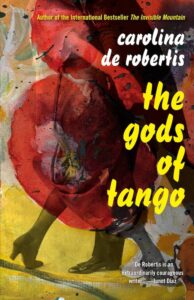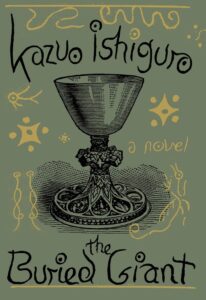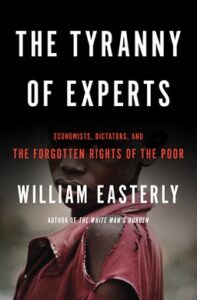Book Reviews
Arana’s Review of “The Gods of Tango: A gender-bending tale of music and love” by Carolina De Robertis
Times change. A century ago, Pope Pius X issued a pastoral letter against the tango, condemning it as degenerate, immoral, pagan. Today, Pope Francis insists that he likes it, that it lives deep inside him, that he often danced it in Argentina as a young man. Punctuating this striking reversal of opinion, hundreds of tango dancers flash-mobbed St. Peter’s Square on the pontiff’s birthday in December, twirling around on the cobblestones of the Via della Conciliazione in what the Catholic Church once would have called an obscene act. “I see the ‘tangeros’ are here,” Francis exclaimed, greeting the dancers with an amiable welcome.
Read More“Now I’m a mother and a married woman,” begins Bianca, the narrator of this account, “but not long ago I led a life of crime. My brother and I had been orphaned. Somehow that justified everything. We didn’t have anyone. And it all happened overnight.”
Read MoreThere are authors who write in tidy, classifiable, immediately recognizable genres — Jane Austen, Alexandre Dumas, William Faulkner, Gabriel García Márquez, to name a few — and then there are those who adamantly do not. These others can surprise us with story lines and settings that are guises to be worn and shucked after the telling. Masters of reinvention, they slip from era to era, land to land, changing idioms, adapting styles, heedless of labels. They are creatures of a nonsectarian world, comfortable in many skins, channelers of languages. What interests them above all in their invented universes is the abiding human heart.
Read MoreNow, in a twist straight out of a Saramago novel, a traveler begins long after his life is over. “Skylight,” a manuscript penned in the 1940s and stranded in an editor’s drawer for almost 40 years, has just been published in translation. In it, we see what Saramago called “the green that preceded the harvest” — the beginning of his brilliant, Nobel Prize-winning career.
Read MoreNestled into the title of Haruki Murakami’s new novel are the words “Years of Pilgrimage.” It’s a common enough catchphrase for a coming-of-age story, and easy enough to dismiss as mere packaging. But as we peel the onion of this remarkable novel — as it takes us on a spellbinding descent through the rings of hell in Tsukuru Tazaki’s young life — that spectral phrase takes on new meaning.
Read MoreIf America has a Victor Hugo, it is Amy Bloom, whose picaresque novels roam the world, plumb the human heart and send characters into wild roulettes of kismet and calamity. Her best known work, “Away,” was an epic adventure set in the early 20th century. In it, a Jewish mother survives a devastating Russian pogrom, comes to America, becomes…
Read MoreIt is a measure of our distraction that Sebastian Barry — one of the best writers in the English language — is not better known in this country. His soul-wrenching narratives and incantatory prose rival those of British novelists who are far more famous on these shores: Ian McEwan, Hilary Mantel, Kazuo Ishiguro. But whereas those artists write…
Read MoreCan a whole global development community be wrong? Can it be that it’s been wrong since the beginning? That the glittering palaces dedicated to fighting poverty — the World Bank, the United Nations, the Gates and Rockefeller foundations, not to mention the aid agencies, think tanks, and well-meaning initiatives by policy experts and Hollywood stars…
Read MoreAlmost 500 years ago, the newly formed Empire of Spain — forged by the marriage of Ferdinand and Isabella, blessed by the pope, and unified by the eviction of Moors and the forcible conversion of Jews — issued a declaration that would forever define the Americas. It was called the Requerimiento, and it stated unequivocally to natives of the New World that the land on which they stood belonged to the Spanish Crown, that they would henceforward be Christians, and that any effort to resist would be met with war, seizure and enslavement.
Read MoreBook review by Marie Arana, full review at The Washington Post. Told and retold since time immemorial — by fabulists from Shakespeare to Bertolt Brecht — the story of Joan of Arc shows no sign of loosening its grip on our imaginations. “She was honorable in an age which had forgotten what honor was,” Mark Twain rhapsodized,…
Read More







